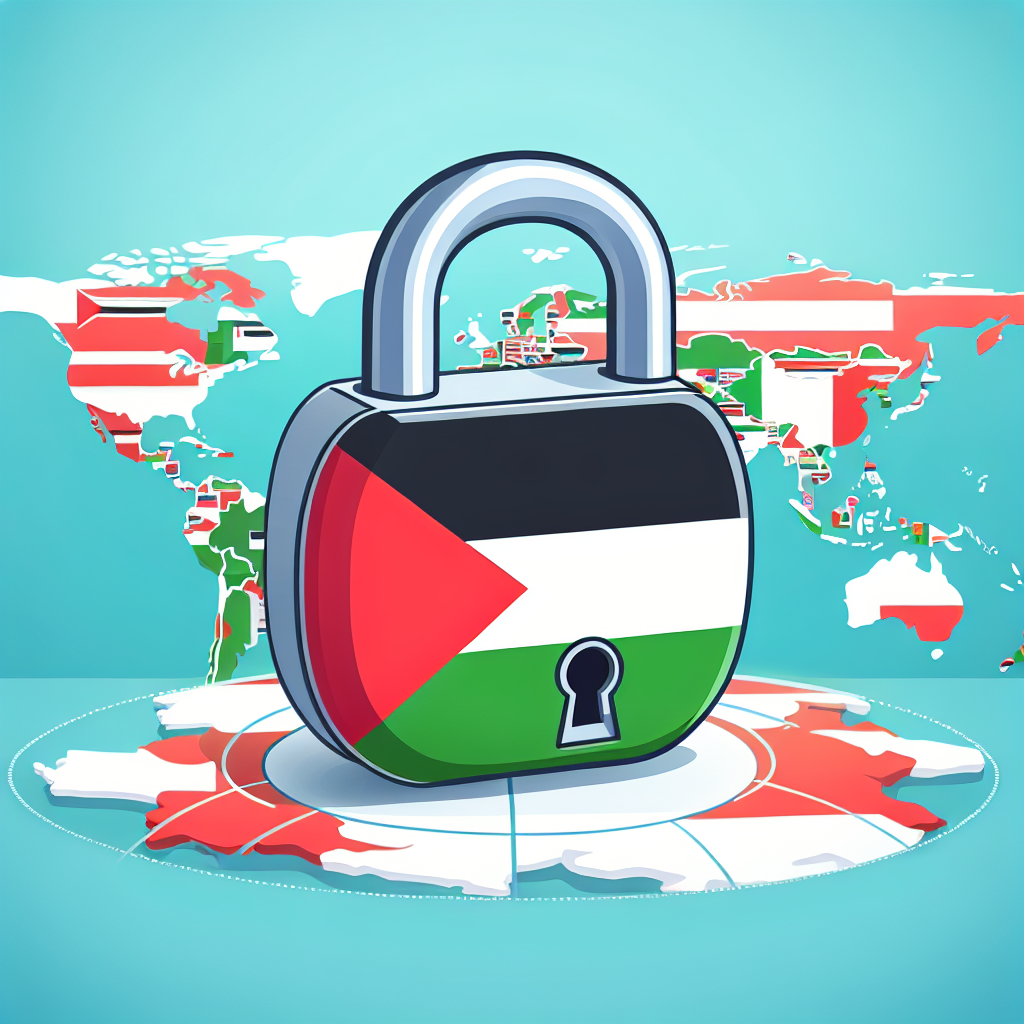UN Experts Urge US to Grant Visas for Palestinian Leaders Ahead of Assembly
The experts warned that Washington’s recent visa suspension risks undermining international law and the UN’s role as a neutral platform for diplomacy.

United Nations human rights experts have called on the United States to lift restrictions on Palestinian leaders and nationals seeking to attend the upcoming UN General Assembly in New York this September. The experts warned that Washington’s recent visa suspension risks undermining international law and the UN’s role as a neutral platform for diplomacy.
US Blocks Palestinian Officials from Entering UN Headquarters
On 29 August, US Secretary of State Antony Blinken announced that the United States would deny and revoke visas for officials from the Palestine Liberation Organization (PLO) and the Palestinian Authority (PA). The move, he said, would remain in place until Palestinian institutions “repudiate terrorism – including the October 7 massacre.”
Blinken also condemned what he called Palestinian “lawfare campaigns” – appeals to the International Criminal Court (ICC), International Court of Justice (ICJ), and ongoing efforts to secure international recognition of Palestinian statehood.
The decision comes at a sensitive time, as the General Assembly is set to debate Palestine’s right to self-determination and review the ICJ’s 2024 advisory opinion, which declared Israel’s occupation of Palestinian territory illegal and called for its end by September 2025.
UN Experts Cite Legal Obligations Under Headquarters Agreement
In response, a group of UN-appointed experts said the visa restrictions violate the United States’ binding obligations under the UN Headquarters Agreement of 1947, which requires the host country to grant access to all persons invited by the United Nations, regardless of nationality or diplomatic recognition.
“The General Assembly in New York is the epicentre of global diplomacy for peace, justice and human rights,” the experts said. “Unilaterally excluding foreign leaders strikes at the heart of this vital mission.”
They noted that the United Nations has recognised the State of Palestine as a non-Member observer State since 2012, and the PLO has been permitted to participate in Assembly debates since 1974.
“The exclusion of Palestinian officials directly interferes with upcoming debates designed to advance the Palestinian right of self-determination under international law,” the experts added.
Accusations of Double Standards
The experts strongly rejected efforts to equate the PLO and PA with Hamas, emphasising that they were not responsible for the October 7 attacks. They also pointed out that while the US has barred Palestinian officials, no Israeli officials accused of war crimes have faced similar restrictions.
“Seeking to uphold international law through international courts is not ‘lawfare,’” the experts stressed. “It is a legitimate means of pursuing peace and justice according to the international rule of law.”
The ICC is currently investigating alleged crimes by both Israeli and Palestinian individuals, while the ICJ is considering a genocide case against Israel relating to its military actions in Gaza.
Visa Suspensions Extended to Ordinary Palestinians
In August, the US further escalated restrictions by suspending visitor visa processing for Palestinians in Gaza, later extending the suspension to the West Bank and Palestinians living abroad. Officials cited “national security concerns,” but UN experts argued the measure amounts to unlawful discrimination based on nationality, branding all Palestinians as potential security threats.
“These suspensions stigmatise all Palestinians as somehow associated with terrorism,” the experts warned. “They unlawfully discriminate without legitimate justification.”
A Call to Uphold Diplomacy
The experts urged the United States to restore its commitment to diplomacy by lifting visa bans and allowing Palestinian leaders to participate fully in UN discussions.
“We urge the US to grant visas to Palestinian officials, and not restrict participation only to those with whom it agrees,” they said. “Diplomacy offers the hope of peacefully settling even the most difficult disputes.”
The concerns have been formally raised with the US government, but it remains unclear whether Washington will reverse its decision before the General Assembly convenes later this month.










